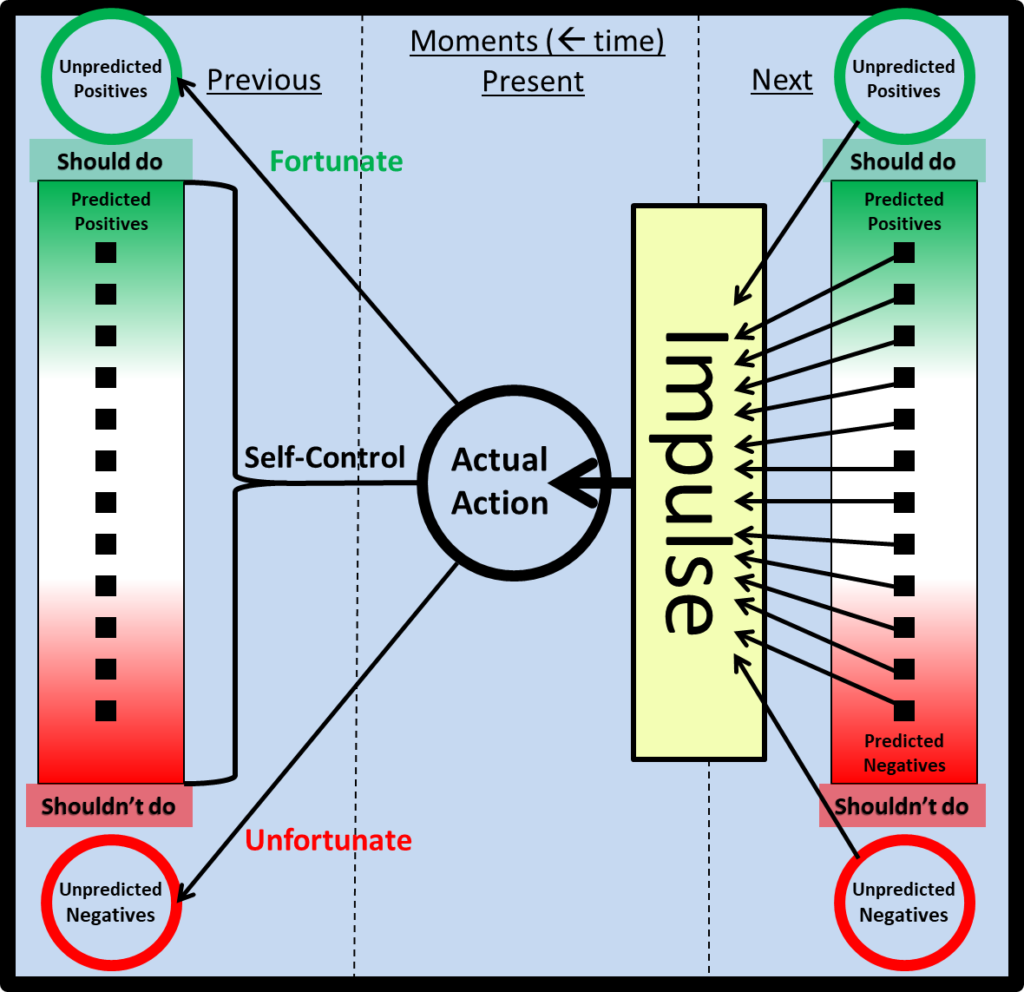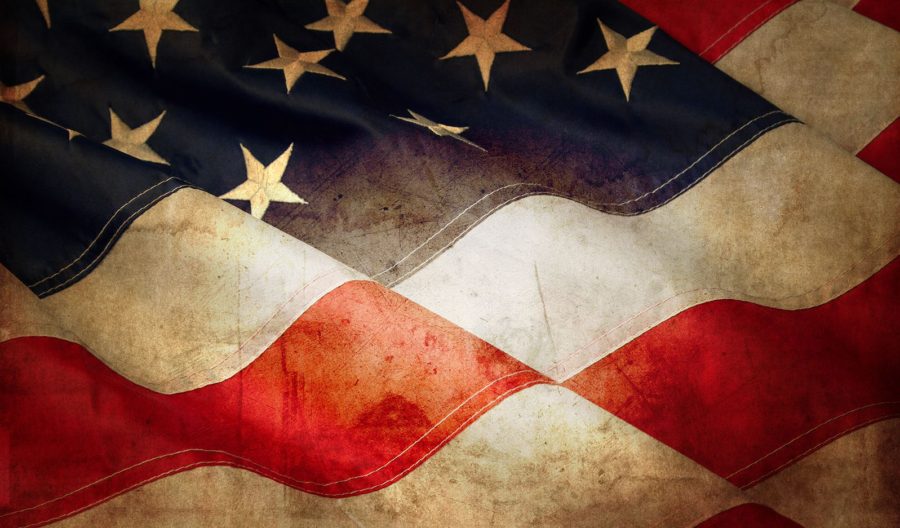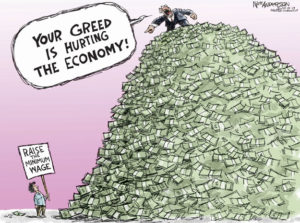
The conditions of our births are blind luck. The socioeconomic status of our parents, their capacity for loving kindness or lack thereof, the year, the trends in geopolitics and the budding advancements in technology are all incredibly impactful regarding the adults that we become and none of those phenomena or their contents are even slightly under our control when we’re born. “I was given this word. I didn’t make it.” – Tupac Shakur, 1993. Most reasonable people agree that the choices we make determine the shape of our character. Most neuroscientists agree the states of our brains, at any given moment, determine the choices we make. People should understand that, in one sense of the word “control”, you can’t control the state of your brain from one moment to the next and, in another sense, controlling the state of your brain is arguably your most pressing responsibility. We will attempt to distinguish those connotations of “control” in this article. Fate and choice are not mutually exclusive. You have a destiny and you’re creating it.
Let’s say your parents are divorced and a few months ago at the age of six your father pulled you aside and said “You’re mother is a terrible person and she deserves every bad thing that happens to her.” You, however, never experienced her that way. When you think of her, you think of how she would pick you up, spin you around, and kiss you like nothing mattered more in the world than hugging you tightly in that moment. You remember the way she made you feel and contemplating your father’s message, whom you also love very much, confuses you. Another fact of your life is that you think your slightly older cousin, Chris, is the coolest human being alive. You admire him in the deepest sense. He’s nine years old and equally mature. Also, your favorite TV hero has successfully drilled into you the moral truth that “Stealing is wrong. One should never steal.” and you tend to carry that sentiment close to heart. I’m arguing that these events are more the result of luck than they are your responsibility at the moment. At this stage of your life, these events are more happening to you than they are they resulting from you. The way your father treats you and the way he speaks of your mother is 100% luck or unluck. The same is true of your mother’s manner towards you. Your feelings for Chris will, in some non-negligible ways, be partly a result of actions that you have previously taken and you are responsible for the sum of those actions thus far. That said, you’re a six year old child and are still deeply within the portion of your life that most people would not describe as your “fault” in many meaningful ways. Essentially every aspect of your living situation, your roof, your diet, your clothes, your education or lack thereof, etc., is a consequence of decisions that adults are making. The fact that your favorite TV Hero is your favorite will in some ways “be on you” but the vast majority of responsibility for what information is and isn’t going into your head mostly rests on the shoulders of your guardian or guardians. In this moment, you are only responsible for a tiny sliver of the facts of your life and that sliver is about to get a little wider.
You are waiting in a busy line next to your cousin Chris and you’re both standing behind your mother. There is a $50 bill slightly sticking out from the corner of her bag. Your cousin elbows you and makes a suggestive gesture towards the precarious bill. You understand his intention. He’s asking for your quiet approval of his forewarned misdeed. You didn’t expect him to make this intrusion on your attention and now, for a few moments, you can think of nothing else. You do not know, at this first moment, how you are going to react to his request. The message your father once gave you about your mother’s undeservedness plays audibly in your mind and you are tempted to affirm Chris’ desire. Then, in the next moment, the memory of your mother’s embrace glides over your skin, tightens your heart, and you’re tempted to push Chris in his chest. Then, you look into Chris’ eyes. You appreciate his palpable confidence and a powerful yearning for his approval falls over you. Next, you look directly at the bill itself and your favorite hero’s call to honesty echoes loudly in your ears above the cacophony of the crowd. This cascade of image and emotion moves though you without your consent in an extremely vivid 4 seconds. At the end of that grace period, in this final moment of deliberation, you still have no conscious insight into what reaction you will give to Chris. Will you support his thievery or will you not?
Scenario One: Support
Your face bounces up and down three times. You nodded in approval. To say that that action came out of you is probably a more accurate description than to say you “chose” to make it, especially during the hundreds of milliseconds that your face was actually bobbing. Nonetheless, immediately after that motion and from then on, for you and for the rest of society, that reaction in response to your impressively confident cousin will be known as a “choice”, a choice that you made of your own free will without coercion or manipulation, a choice that you must take personal responsibility for making. He took the bill. Your mother didn’t notice. He put the bill in his pocket and punched your shoulder approvingly. Now you’ll share a criminal secret with your cousin for the foreseeable future. You have now played a small part in his budding criminal enterprise and it’s your responsibility to bear.
Scenario Two: Rebuke
Your head turns left and right, hesitantly at first and assuredly after two iterations. You turned him down. You aren’t sure how you feel about it. You’re upset that he’s upset and simultaneously very proud of yourself. The action that manifested itself through you is now yours to own for the rest of your life. Chris furiously crosses his arms, frowns, and kicks a tiny pebble in your general direction. He has no accomplice now. If he insists on stealing your mother’s cash he runs the risk of being found out immediately. He won’t do it. He huffs, slams his folded arms against his stomach, and turns his back to you. Your relationship with Chris is very different because of this sequence and, though a six year old wouldn’t notice in the moment, it’s been vastly improved.
No matter which reaction became reality there is a meaningful description that can be applied to both. A tiny amount of the luck that characterized the earliest sections of your life has been converted into an equally tiny amount of responsibility. This situation and thousands or tens of thousands like it are the events during which the potentiality of the future becomes the actuality of the past. You are responsible for every choice you make despite the fact that you aren’t the author of your own thoughts.
We can parse the concept of responsibility into at least two components. Responsibility is comprised of a locus of action and a locus of accountability. Where does responsibility fall when a tornado destroys a neighborhood? The tornado is responsible, of course. That said, it only satisfies the locus of action part of the concept. Surely, it was the fast moving air particles that razed the homes. However, the action of the tornado does not satisfy the accountability part of the concept of responsibility. To satisfy that aspect, i.e. to make us feel we are correct in the application of responsibility or blame, a perpetrating party has to have the capacity to be held responsible or to be held accountable. It seems that the capacity to receive responsibility is unique to the animal domain, unsurprisingly. A tree cannot be held accountable for falling on power lines during a storm. Neither can the rain that made the branches too heavy for their trunks. We have to move the tracer of accountability backwards until we encounter some animals, e.g. the city government that neglected said tree’s perilously perched decaying limbs for months before the storm. We, from our first person perspectives, don’t always feel like we should be held accountable for every action we take. When it comes to decision making we often use phrases like “something came over me”, “I had no choice”, and “I had to do what I had to do.” From a first person perspective, the accountable party inside of us and the party taking actions don’t always seem like the same thing. When those two parties seem identical, that’s probably the easiest first person perspective to deal with. Yet still, they might only be vaguely overlapping or very different from each other or even in direct conflict, as is often the case in active drug addiction. Each case will engender some consequential amount of subjective suffering. This fact of subjective suffering is not optional but the perceived amount is. No matter the subjective case, from an objective third person perspective, i.e. to others, we unquestionably embody the locus of action and the locus of accountability in regards to our actions. When words come out of our mouths, we have to take full responsibility for every utterance. When we perform actions with our hands and feet or necks and faces, we have to do so in full light of every potential consequence we can imagine those actions incurring from others. We have to take full responsibility for every single free choice we make, every accomplishment and every mistake. Polite society depends on it. This is how the luck of birth is slowly converted into the responsibility of adulthood. It’s my argument that this conversion be considered complete when a person is 25 years old, absent extenuating circumstances such as developmental difficulties. This argument isn’t meant to underappreciate the hierarchical advantages handed to some people who are born on third base or disregard the disadvantages shackled onto babies born underprivileged. This argument is meant to give us empathetic language to use when discussing our wildly disparate fortunes at birth. 25 years old is about the time that the prefrontal cortex finishes its development. That seems like as good a time as any to tell healthy people that their destiny is fully in their hands from that point on.
How long is a moment? 1 second, 500 milliseconds, 150 milliseconds, shorter? Let’s then imagine the relationship between three consecutive moments, the moment you’ll experience next, the moment you’re experiencing right now, and the moment you just experienced. We typically use the word “control”, specifically self-control, to refer to the subjective experience of our own behavior during these three subsequent moments. These transitions are constantly happening and you are always a little different at the end of each transition than you were at the beginning. Your brain has a list of possible behaviors that it’s imagining, judging and projecting onto the next moment. This list has a moral component as the behaviors range from actions that you should take to actions you shouldn’t. As the next moment transitions into this one, one of these actions is taken. Exactly which action is “chosen” from this list is not exactly under our “control” in the same spirit that we usually use the word. It occurs to us as an impulse. The contents of which cannot be predicted exactly. That’s a split in the definition of control that we are attempting to describe here and in the visualization below. You know what you might do. You know what you can do. However, what you actually do is always a little bit of a surprise when you pay close attention. After this moment becomes the moment that just happened, our brains analyze the action or actions we just undertook. If the action we took was within the “should” section of our moral behavior list, we feel at ease and report to others that we are in control of our actions. If the action we took was within the “should not” section of our moral list, we feel ill at ease and rationalize or seek to understand how we could have performed that way. Temptation, fear, hurt, exhaustion, these are common traits of the human psyche that often explain why we acted in ways we know we shouldn’t have. Still, none of these actions would push us to declare that we are not in control of ourselves. What if the action we took didn’t seem to be on the list at all? In the case that we truly surprise ourselves, our lack of control is on display. We can count ourselves fortunate if the tiny surprises are often of the positive end of our moral scale and we should count ourselves very unfortunate if they aren’t. In the moments during which we encounter true behavioral surprises, we might be tempted to say that we were possessed by genius, by an angel, or by a demon. More could be said about how our conscious lives are only ever lived in this moment but that’s another story. It may be true that we are always a little surprised by the choices we make but these mundane socially acceptable surprises, these tiny surprises, are so utterly common, i.e. several hundreds every day, we choose not to call them surprises in order to protect the integrity of what we mean by “surprise”. We call them “rational choices”. As an example, you don’t know exactly what you’ll say to your coworker Ken when you see him in the morning but you expect it will be something nice. You didn’t know you would say “Howdy, Ken!” just before you said it but that’s a socially acceptable surprise. If the words “Get lost, Ken!” had come out of your mouth instead, it would have been a surprise with a capital “S”, a true surprise. This true surprise would force you to seriously question your inner feelings about Ken. There’s a space of non-control completely nestled inside of the colloquial conception of self-control. You don’t know exactly how you’ll behave. None of us do but we report to the world that almost all of our behaviors fall into a range that our brain is predicting and we report to the world that we intend to actualize more positive actions than negative. This describes the neuro-mechanism we refer to as “choice”.

Moment To Moment Choice: Time is flowing from right to left. For the “Next” moment we consider a list of possible behaviors ranging from what we “Should do” to what we “Shouldn’t do”. Then an “Impulse” occurs to us and we take some action. Our brain is also looking at the “Previous” moment and comparing the action we took to the list of possible behaviors that we imagined for that moment, when it was the “Next” moment. If our behavior was “Predicted”, we report that we have “Self-Control”. If our behavior was unpredicted and positive, we should consider ourselves fortunate. If our behavior was unpredicted and negative, we should consider ourselves unfortunate.
How can I be better? If it’s true that I can’t control exactly what occurs to me, how can I take responsibility for my mental outcomes? If we allow the definition of responsibility described above, neither you nor I have a choice about taking responsibility for our actions. We are the locus of action and the locus of accountability for all that we do. Your body is your own. Your mind is your own. Own your body and own your mind as best you can. There’s only one brain in this world that is connected to the muscles in your hands and it’s the brain to whose inner workings “you” are solely privy before those inner workings manifest as actions in our shared reality. Actions have consequences. Your actions have consequences. There’s a deep drive in each of us to stay alive. If we are to stay alive, we must identify any and every threat to our lives before it kills us. Your actions can manifest as a threat to my life. Therefore, it is my natural instinct to identify all the animals that can act as threats to myself and my family. You are one of those animals for me. I am one of those animals for your. Responsibility is two sided and vital to the continued prosperity of our species. We collectively apply responsibility to individuals and individuals subjectively take responsibility for their actions. When both sides agree about the loci of action and the loci of accountability in a given scenario, there is harmony. When there is disagreement about those loci there is conflict. The first choice you make every day is to live or not. The second should be to take responsibility for the first.



Comments
Interesting thoughts Khary.
I would love to sit and discuss your concepts. While we cannot control our circumstances at birth, people were given “choice” we have been told when Christ died for one’s sins. There is choice between left or right, good or bad and up or down.
Socio economic conditions do lend to behavior but does not determine choices an individual makes; that is where “responsibility” kicks in.
In your example of the father’s comments to his son, he chose to make those negative comments about the mother, and that was irresponsible.
Good read.
Cousin Wendell
Author
Thanks for reading, Wendell. I sometimes point out that we’re making choices constantly. To use “constantly” instead of “all the time” in the previous sentence was a choice and I should take responsibility for it. I could write more about the period of deliberation that precedes choices as well. The period of deliberation could last for a few seconds or a few years depending on the context of the decision being made. I’m glad you liked it. Thanks again.
Very nice article !! Well- written and “scientific” in approaching the subject of responsibility ! i would only point out that there is always a “spiritual” component to our actions at well….this spiritual influence can help us overcome the mistakes that we all make. The spiritual foundation provides a basis for avoiding some mistakes ? Good job Khary !